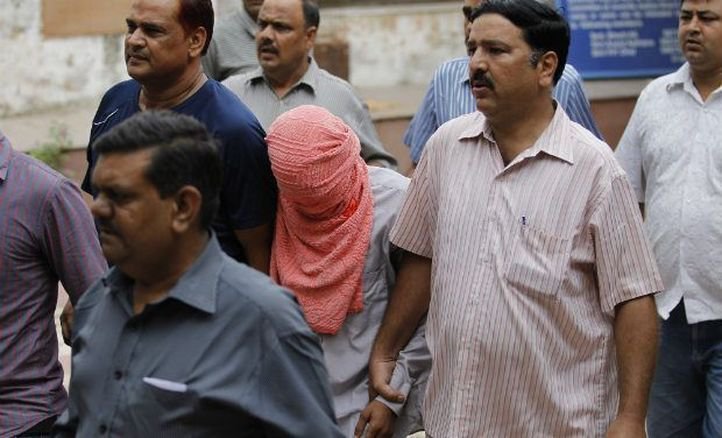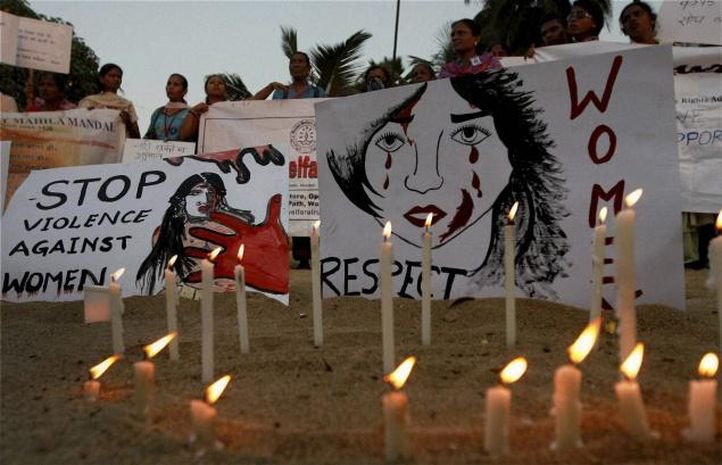After a night spent reading up on Nirbhaya and Juvenile Justice Act, I fell asleep with images of buses, rods, broken bodies and violence. I fell asleep with a deep feeling of helplessness.
I dreamt that I was in a courtroom – black robes, a white wig, gavel in hand. I was the judge deliberating on the fate of a minor boy. He stood across the bar from me, eyes lowered, not daring to make contact, ears plucked. Waiting.
My mind went through all angles of the story, trying to decide what my judgement should be. I had all the power, he had none.

I heard both sides of this story.
The juvenile should be punished. He was 17 years and 6 months old. He was mentally capable of knowing what he was doing. He knew it was wrong. Did he understand that women were human beings as well? If it had happened six months later, we wouldn’t even be having this discussion.
Or, the juvenile should be given a chance to reform. We are all just thirsty for blood, giving in to mob mentality. If at 17, he believed that rape was acceptable, then society had obviously conditioned him wrongly. We are all to blame, the system is to blame. Instead of giving in to our anger, we should see that, like Nirbhaya, he too was a victim. If given proper guidance, he could perhaps change and become a productive and contributing member of society.

After poring over all these facts and opinions, I realised that the verdict of the Juvenile Justice Act didn’t matter to me.
As a woman, living in Delhi… do I really believe that this will change anything for me? Will this allow me to take back the night? Wear whatever I want to? Do I really believe that this is the systemic change that provides equal footing for me in society?
The answer is a resounding NO.
Three years after that horrendous night of the gang rape, not much has changed on the ground. The rape statistics have not declined. Women are still blamed for being raped. Rapists are still protected by police and politicians alike.
Perhaps it’s alright that the juvenile is out of prison. He has been rehabilitated; he understands what he did wrong. He has to live with the shame of knowing that he committed one of the most heinous crimes in our collective memories. He has not been sent home, but lives currently at an NGO. He is still being monitored continuously.

Our youth is our most precious commodity and it makes no sense to waste a life that is filled with potential. Young men, especially, are taught to disregard the opposite sex; to define their masculinity… by dominating women. Government programs should focus on changing this mindset.
We need to provide proper access to education (as many as 30% of juvenile offenders have never been to school), health and social systems that allow these disenfranchised youth to learn and prosper. In this situation, we don’t need brutal punishment, but rather we need to put systems in place that allow for rehabilitation in a scientific and organised manner. If we as citizens could trust that process, then there would have been no need for the Juvenile Justice Act to be amended. Perhaps, that would be my final judgement.
But as I was about to bring the gavel down on that thought, my dream changed.
The courtroom became a bus. The bar turned into the steel pole used by countless passengers as a place to lean against after a long day. Tired souls, going through tired days. I was also tired, wishing that the dream would stop and I could sleep in peace.
I wore a salwar kameez, no dupatta over my head, grocery bag in hand. I was just a girl trying to get home after work. He stood across the pole from me. I was no longer protected by the law, my position or his incarceration. My eyes were lowered, not daring to make contact, ears plucked.
Waiting. I was scared. He had all the power, I had none. I woke up to reality with a deep feeling of helplessness, wondering… am I really safer now?

















